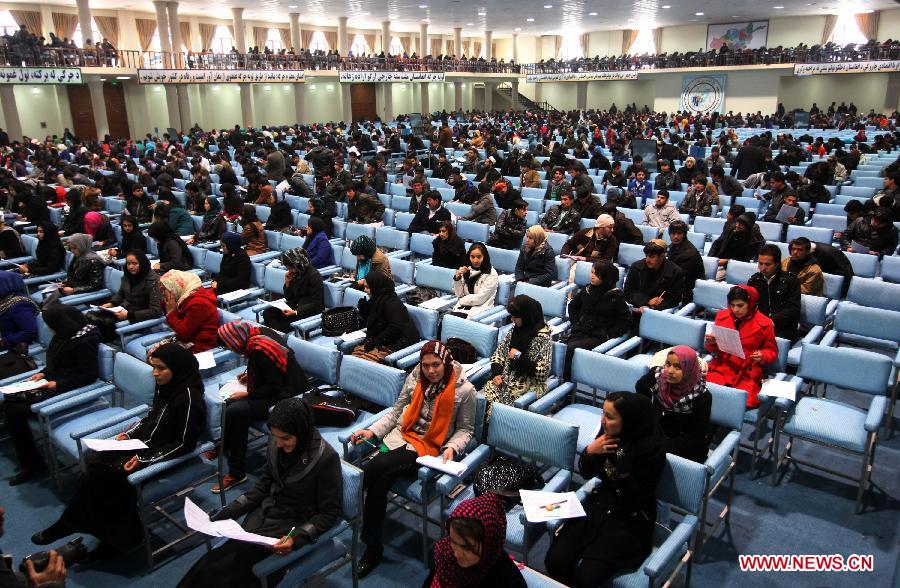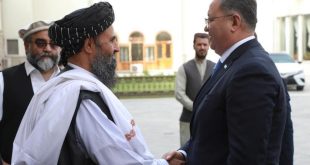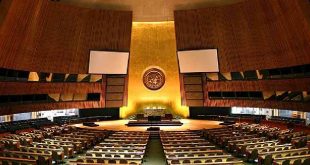By Ahmad Siyar Yazdani-After eight years that private higher education institutes are operating in Afghanistan, concerns have now been raised about performance of the education institutions in the society.
Recent findings show that out of more than hundred private higher education institutions in Kabul and other provinces, none has a proper building (campus). Lack of professional teachers and monitoring, influence of powerful figures, lack of unified curriculum, not issuing graduation documents, lack of teaching hospitals for medical students and easy entrance exams are other challenges faced by private higher education institutions.
In a bid to resolve the challenges faced by these institutions, regulation regarding private higher education institutions was amended twice in the past eight years and some new rules were added to the act. However, the challenges faced by the institutions are yet to be resolved.
Requirements for establishing private universities
The regulation on private higher education institutions adopted in 2007 requires every founder of private higher education institute to fulfill the following conditions:
Prepare a statute of organizational structure, deposit Afs200,000 in bank as a guarantee, lecturers’ educational documents should be assessed and that lecturers of the institutions should not have a criminal background.
However, amendments in the regulation requires the institutions to have a special building, have a unified curriculum, must organize entrance tests in Spring, Autumn, teachers should be at least holding masters degree, deposit 15 million Afghanis as guarantee and the teachers should pass a assessment test of the Ministry of Higher Education (MoHE).
Akhtar Muhammad Obair, deputy spokesman for the MoHE, said the amendments are implementable from this year on and private higher education institutions are required to implement them.
Despite that the regulation is amended and the amendments are applicable for all private institutions, have the challenges facing the institutions resolved?
Kardan University was the first private university in Afghanistan found in 2003. “There were no rules and regulations when the institution was established and it was found based on a presidential decree,” said Mahmoud Dastagir, vice chancellor of the university.
According to Dastagir, despite the new conditions for establishing private university have been adopted, Kardan University still lacks a unified curriculum and a special campus. Private Higher Education Institutions Directorate of the MoHE hasn’t given an assessment test for lecturers of the university, he added.
However, some newly established private institutions are unaware of the amendments.
Bayan University, in contrast with Kardan, is a private higher education institute found this year after that the regulation was amended. “Bayan Institute of Higher Education was established this year and it still lacks a unified curriculum, special building for learning and no one is monitoring activities of the university, and out of 16 lecturers of the institute, three of them hold bachelor’s degrees,” said Hemat Erfan, the vice chancellor of the varsity.
When asked that why they hired lecturers with bachelor degree despite the regulations, he said that the percentage of the lecturers’ scores is higher than 80 percent.
“I am telling you bluntly that some of the private universities sell degrees and in some universities a student can promote directly to higher semesters without passing the first and second semesters,” he added. He said that in some cases students only show up during exams. Erfan said that he is even ready to provide documents to prove his claims.
Akhter Muhammad Obair, deputy spokesman for the MoHE, said they have comprehensively assessed the activities of private higher education institutes since beginning of this year. Outcomes of the assessment haven’t been presented yet, he said, adding that the assessment would not allow any private higher education provider to go against the regulation. The MoHE, as it claims, has only fined seven organizations over the past eight years, since emergence of private higher education institutions.
What adds to the problems and challenges faced by the institutions is scarcity of experienced and professional lecturers.
Hemat Erfan said that most of the private higher education providers don’t hire experienced lecturers, because they demand high salaries. “They [private varsities] hire unemployed bachelor’s degree holders who are preparing their lessons at night time and then give lecture on the same topic tomorrow to the students,” he added. He said that Bayan has 16 lecturers out of which 14 are holding masters degree, while the remaining two hold bachelor degree with percentage of scores higher than 80.
Abdul Latif Roshan, the founder of the Bakhtar University, shares the same opinion with Erfan. He said that the institution has graduated nine batches of bachelor students and the first batch of postgraduate students. However, he said that lecturers of the university are yet to pass an assessment test and lecturers of the organization hold bachelor’s degrees.
When asked that how a lecturer with a bachelor’s degree teaches students of postgraduate courses, he said that they are only teaching optional subjects and bachelor degree holders can teach optional subjects. “The main subjects are being taught by lecturers with master’s degree,” he added.
This comes at a time that in the regulation the conditions apply for all subjects, no matter elective or compulsory.
Officials in other private higher education institutions have also been interviewed, who provided the same response. Noorullah Safi, acting chancellor of Sharq University, said that the organization has 22 lecturers out of which 15 are holding bachelor’s degrees and five of them are from Pakistan. “They haven’t been academically assessed and are hired based on an examination in accordance with regulations of the institution. He said that they are unaware of the new regulations.
It is worth mentioning that even though the new regulation on private higher education providers has been amended, it doesn’t mention that lectures should work as assistant professors with an experienced professor for one month as a probationary period.
Another amendment in the regulation is having a unified curriculum. Akhter Muhammad Obair said that the MoHE has published 51 unified curriculums and has provided them to private universities and they are expected to be implemented in all private higher education institutions, next month. However, officials of private higher education institutions said that they were unaware of a unified curriculum and all the institutions are teaching their own curriculums in different fields.
Another problem is lack of appropriate campus for learning; however, the new regulation says that having a special building for learning is one of the main conditions set for the private institutions. The private higher education institutions are yet to fulfill the condition.
Students of the private institutions also raised their concerns that private higher education institutions after eight years since their emergence still lack a proper campus, and termed it against the academic regulations.
Muhamamd Shafi, a student, said that they even in the capital of the country, Kabul, they are studying in houses made of containers. “There are other examples of buildings used as university campuses, which is in sharp contrast with modern academic rules and regulations,” he added.
In the meantime, Akhtar Muhammad Obair, said that since establishment of private universities two institutes were closed down, seven others were fined and branches of Khan-e-Noor Institute of Higher Education in Herat and Balkh provinces and a branch of Sayed Jamaluddin Afghan University have also been closed down this year.
According to the regulation of the MoHE the fine for higher education institutions ranges from 100,000 to 200,000 Afghanis.
Monitoring standards for private higher education institutions is another problem discussed in this report. Hemat Erfan, the deputy chancellor of Bayan institute of higher education, said that if the situation prevailed they will face greater problems in this regard and those graduating from private higher education institutions will neither be literate nor illiterate.
Muhammad Ali Rezaee, the deputy chancellor of the Rabia Balkhi Institute of Higher Education, accused the directorate of the private higher education institutions of the MoHE of being biased and said: “The directorate is showing soft corner to a large number of private institutions, but acts very strictly with others.”
Abdul Latif Roshan said that representative of the directorate has visited Bakhtar University only once this year. “The representative who visited the institution was previously teaching in the organization, who was later dismissed, for students were not happy with his teaching method,” he added. Roshan said that monitoring by such a person cannot be considered as standard, for it is based on personal hostility.
Hemat Erfan, the deputy chancellor of Bayan, said that in one of the private institutions, lecturer of social sciences is teaching law. He said that they day will come when a lecturer of veterinary will teach medical science. He said that the mushrooming private higher education organizations should have a proper management system. However, he said that MoHE is acting very slowly in this regard. “The MoHE is not paying the required attention to monitor private institutions. They are only sending two or three persons for monitoring during university entrance test, who could be convinced only by inviting them for a launch,” he said.
In the meantime, Muhammd Ali Rezaee, the deputy chancellor of Rabia Balkhi Institute of Higher Education in Kabul complained about scarcity of a proper system monitor standards for private higher education providers. “Every private higher education institution is presenting a curriculum to the MoHE and is teaching it after it was approved by the ministry after a long time, or teaching it without even approval. In some cases the private institutions are being forced to teach 20 to 30 old curricula,” he said, adding that the MoHE has never come to monitor activity of private higher education institution and to see if curriculum is up to date and is worthwhile,” he added.
However, Akhtar Muhammad Obair said that every higher education institution is being monitored by a joint commission of the MoHE and directorate of the private higher education institutions twice a year. “The institutions were last monitored three months ago. The outcome of the assessment is not presented yet,” he added. Obair warned that the private institutions that do not follow the regulation on private higher education institutions will be either fined or closed down.
Other problems faced by private higher education institutions include lack of hospitals for medical students, not issuing academic documents for graduated students, easy university entrance exam and lack of a research center.
Some of the fields taught in the private institutions have direct connection with human life. For example, medical science, which in contrast with international standards is being taught in ordinary residential houses.
The Director (now former) of Private Higher Education Institutions in the MoHE, Masoud Treshwal, said that to resolve the problem they haven’t issued license for any private institution to teach medical science in the past two years. However, Akhtar Muhammad Obair said that Rahnaward Institute of Higher Education has been issued the license to teach medical science over the past two years’ time.
Abdul Latif Roshan said that most of private university doesn’t have a hospital and they mostly rent other medical centers, which itself is a big challenge. He said that control of the MoHE on private higher education institutions is very weak and symbolic.
However, Jamshed Sadeqi, the deputy chancellor of Cheragh Medical Institute, rejected the claims and said: “Anyone who wants to found a medical university can also afford establishment of a hospital, but the real problem is that patient prefer going to public hospitals instead. Thus, our students hardly get the chance to work on real patients.” He added that it will take time for private institutions and teaching hospitals to attract people’s trust. “Though our teaching hospital treats patients for free, still a small number of people refer to it. Around 100 people come for treatment to our hospital on daily basis,” he went on as saying.
Another challenge is that the private institutions after eight years of their activities are still not able to give educational documents to their graduated students. “Hitherto, Kardan University has graduated 17 batches of students. However, none of the students has received the bachelor’s degree so far,” said Mahmoud Dastgir, the deputy chancellor of the institute.
Other private institutions also complain about the problem. Abdul Latif Roshan, the founder of Bakhtar University, said that they have graduated nine batches of students, who are yet to receive their academic documents.
Commenting about the issue, Akhtar Muhammad Obair, said that no budget has been allocated to publish bachelor’s certificates. “On the other hand, issuing the degrees requires a special code in order to prevent fraud,” he said.
When asked that how much money is required and how much time will it take, officials in the MoHE were not able to provide answer. They don’t even know who should pay the amount (MoHE or private higher education institutions).
According to Obair, the MoHE is yet to reach to an agreement with private institutions on template of the certificate.
Another problem is that private institutions haven’t adopted the culture of research over the past eight years, while explorations, inventions and research papers are considered as the main characteristics for university rankings in today’s world.
After research we found out that research in private institution is equal to zero. None of the institutions has produced a single research paper to be compared with research papers of academic institutions in the region and around the globe.
Akhtar Muhammad Obair admitted the problem and said that it will take time for private institutions to establish research centers for their students.
If you compare private higher education institutions with public ones, you will find out that as comparing to public universities it is easy to get enrolled in a private ones. Ali Ahmad has three sons and two daughters, out of five of his children only one is studying in a private higher education institution and two others are studying in Kabul University. “I tried very hard to get all my children enrolled in state universities, but one of my children didn’t study hard and failed in university entry test (Kankor) twice and was no more illegible to take the test. Thus, I was compelled to enroll him in a private higher education institution,” said Ali Ahmad.
Amanullah Paiman, a member of religion, culture, education and higher education committee of Wolesi Jirga, revealed many facts about the problems faced by private higher education institutions, in terms of partiality, personal contacts and financial strength. “It has been long time that I have withdrawn the committee and I am not participating in the sessions anymore,” he said.
According to Paiman the committee hasn’t monitored private or public higher education institutions so far, in order to resolve the problems that they face.
Private higher education institution terms the activities of the religion, culture, education and higher education committee of Wolesi Jirga as ineffective. Hemat Erfan said that he has worked as lecturer in several private higher education institutions, but haven’t witnessed any effective activity from the committee so far. What is crystal clear is that private institutions haven’t been able to fulfill the regulations. Some of officials of private higher education institutions have said that fulfilling the conditions of the regulation on private higher education institutions was a cumbersome job. Norrulah Safi, deputy chancellor of Sharq private higher education institution said that experienced lecturers demand high salaries, while on the other hand finding lecturers with master’s degrees is very hard.
Jabshid Sadeqi believes that having a unified curriculum will kill creativity of lecturers. “In modern world every institution has its own curriculum,” he added.
Though one cannot ignore the opportunities that the private institutions have opened up for students, the institutions are yet to provide quality education.
Sources
Media Office of the Ministry of Higher Education
Private higher education institutions.
People
Students of private higher education institutions
Students of public higher education institutions
religion, culture, education and higher education committee of Wolesi Jirga
Related Regulation
Directorate of Private Higher Education Institutions.
 Afghanistan Times
Afghanistan Times




